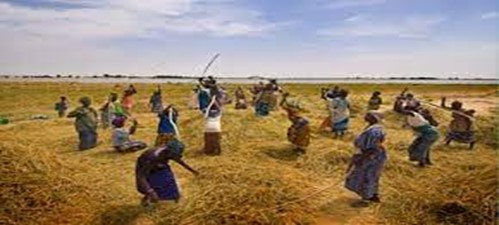
Mali Celebrates Independence, September 22, 2023
By Joy Osiagwu
Mali is a landlocked country in West Africa with Algeria on the north, Burkina Faso and Cote d’Ivoire on the south, Niger on the east, Guinea on the south-west, and Senegal and Mauritania on the west end as neighboring countries. It is known as one of the largest countries on the African continent, with Timbuktu in the north as a significant trading post. It is still a center of culture in West Africa Today.
The country gained Independence from France on September 22, 1960. However, the nation endured hardship due to 23 years of military dictatorship until 1992, when it experienced democratic elections. But the resurgence of insurgencies in 2012 threw the nation into droughts. The coups in 2020 and 2021 over-running the civil government brought the country to a major setback. The withdrawal of the French troops paved the way for the military’s alliance with Moscow and connection with the Wagner group now in the nation.
The country with a population of 21.4 million people has its capital in Bamako. The common languages spoken are French, Bambara, Manding, Arabic, Turaeg, and Fulfude. The economy is mainly agricultural, with a critical mass of people engaged in subsistence agriculture. Mali is ranked as one of the ten poorest nations in the world.

Mali is a member of the African Union, African Development Bank, European Community, Organisation of Islamic Cooperation, Non-Aligned Movement, and the United Nations.
Governance Structure
The Governance structure in Mali is a multi-party republic. The Presidential system follows the constitution adopted by referendum in January 1992. The presidency is for a five-year tenure, and a prime minister is appointed and can select the cabinet members. The nation is headed at the moment by an interim president, Assimi Goita, the leader of the National Committee for the Salvation of the People, who took over the leadership for the second time in May 2021 following his dismissal of the former interim President Bah Ndaw in 2021 coup d’état.

Trending News
After ten years in Mali, the last French troops left the country. Recall that France left five thousand soldiers in the region in 2013 to fight against Islamic insurgents.

Euro news reports that the withdrawal process was completed following the announcement by President Emmanuel Macron to pull out, following the crisis with the ruling military regime in the last year between Mali and neighboring nations and the entrance of the Russian mercenaries from the Wagner Group to the area.
Mali-Ottawa Connection
There is a sprawling number of Malian Canadians in Ottawa-Gatineau under the umbrella of the African Canadian Association of Ottawa. A number of them reacted to the military coup that ousted President Ibrahim Boubacar Keita in August 2020, in an interview with CBC’s Olivia Bowden.
They supported the development with the hope of a new course for Mali after several years of instability.


Ousted Ibrahim Boubacar Keita of Mali. (Photo- LudovicMarihe /Reuters).
However, African leaders condemned the revolt stressing that a weak democracy is preferable to a military regime.
The Embassy of Mali is located at 50 Goulburn Avenue, Ottawa, ON K1N 8C7.
Phone: 613 232 1501. While the Embassy of Canada to Mali is located in Bamako. Email: [email protected] Phone: +233 4498 0455.
